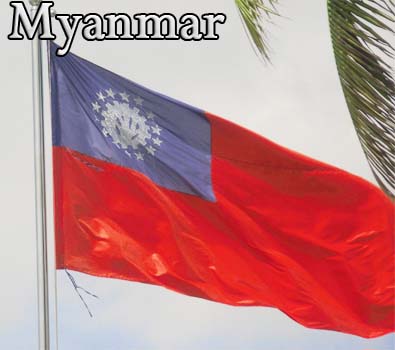Myanmar military urges ethnic groups to become frontier forces
 Yangon - Myanmar's junta on Sunday used state-run media to urge the country's myriad ethnic-minority armies to transform themselves into frontier forces before the 2010 general election.
Yangon - Myanmar's junta on Sunday used state-run media to urge the country's myriad ethnic-minority armies to transform themselves into frontier forces before the 2010 general election.
An article titled "They will choose the correct way" in The New Light of Myanmar called on the 17 main ethnic militias and 20 smaller ones to abide by past agreements to transform themselves into "frontier forces" before next year's elections.
The editorial in the government mouthpiece followed the army's occupation of the Kokang region in the northern Shan State last month after Kokang leaders opposed efforts to transform their 1,500-strong army into a "frontier force" under government control.
The attack on the Kokang was seen as a warning to other ethnic groups to heed the junta's demands.
The military junta signed ceasefire agreements with some 37 ethnic minority insurgent groups two decades ago in an effort to "bring them in to the fold."
Those jungle forces were allowed a measure of autonomy in their traditional territories and permitted to keep their weapons.
"The state on its part has spent 20 years getting the national races armed groups to transform themselves into frontier forces," the article said. "This duration of time is more than enough for a transition period."
The second step, as spelled out in the 2008 constitution, will be to hold elections and transform the former insurgencies into frontier forces, under the command of the national army.
"Members of the national race peace groups can face difficulties when they abandon their arms ... so the government initiated the programme to form them into frontier forces under the control of the Commander-in-Chief of Defence Services," the article said.
The commentary denied reports that the government was using force to persuade minority groups to transform their armies into frontier forces, an apparent reference to the Kokang case.
Myanmar authorities claimed to have cracked down on the Kokang because they were involved in illicit arms manufacturing and drug trafficking.
The military, which has ruled Myanmar since 1962, has been known to bend the truth in the past to serve its own purposes.
There are fears that the largest ethnic groups such as the Wa and Kachin could join with other forces that have never signed ceasefires with the government, such as the Karen and Shan, in openly opposing the junta's efforts to bring them to heel before next year's planned elections. dpa